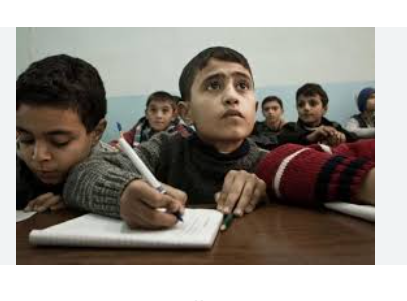The 2022 report by the Program for International Student Assessment (PISA) has shown that although Turkey ranks higher in all three categories of math, reading and science compared to 2018, the country’s scores in these areas are below the average of Organization for Economic Cooperation and Development (OECD) countries, Turkish Minute reported.
According to OECD, food insecurity among children and teenagers is the highest among members. Various Turkish press sources assert that even college students suffer from malnutrition.
The results of the eighth PISA, a test of the science, mathematics and reading skills of 15-year-olds from around the world, were published by the OECD on Tuesday. The PISA report is the world’s most comprehensive report on education and covers nearly 700,000 students in 81 countries.
According to the report, Turkey’s mean score in mathematics decreased by one point (454 to 453). In reading it decreased by 10 points (466 to 456), while in science, it increased by eight points (468 to 476), compared to 2018.
The OECD average mean score in math is 472, 476 in reading and 485 in science.
Meanwhile, Turkey placed 39th in mathematics, 36th in reading and 34th in science, ranking higher in all three areas compared to 2018.
According to the report Turkey is among the OECD countries where the proportion of students suffering from food insecurity exceeds 10 percent of the student population, at 19.3 percent.
Poor literacy, language and science skills constitute one of the most difficult obstacles to employment, as well as Turkey’s aspiration to become a high-tech economy.
The PISA assessment began in the year 2000 and is conducted every three years. However, according to the OECD, the 2021 assessment was postponed to 2022 to “reflect post-COVID challenges.”
Some 60 pct of Turkish youth skipping meals due to poverty, CHP’s report reveals
About 60 percent of university students live below the relative poverty line and they skip meals due to crippling economic situation, according to the “Youth Poverty File” of Turkey’s main opposition Republican People’s Party Poverty Solidarity Office as reported by daily BirGün.
A survey of 13,000 students indicates that one of the most important problems of young people in Turkey is access to nutrition.
Even in public universities where the state subsidizes food fees, cafeteria prices have increased by 75 to 80 percent. Moreover, as seen in examples such as Ege University and 9 Eylül University in Aegean İzmir province, some universities implemented increases that exceeded 200 percent.
Over 17.5 million people in Turkey live in need of social assistance
Overall, poverty is increasing despite the economy growing on average by 4% since the pandemic. Poverty is reported to be so bad that thousands of families are withholding their children from school to save on lunches and educational expenses.
Some 17.6 million people live in need of social assistance in Turkey. according to the data revealed during the discussions on the 2024 budget of the Family and Social Services Ministry at the Parliament.
According to the data boastfully announced by Minister Mahinur Özdemir Göktaş, 4.4 million households benefited from social assistance in 2023 while 3.5 million of them received regular assistance, as reported in the daily BirGün.
In 2018, when Turkey switched to a presidential system, 3.5 million households were benefiting from social assistance.
In 2023, the number of children whose families cannot meet even their most basic needs reached 164,000. Comparatively, this figure was 130,000 in 2020, 141,000 in 2021, and 155,000 in 2022.
Follow our English language YouTube videos @ REAL TURKEY: https://www.youtube.com/channel/UCKpFJB4GFiNkhmpVZQ_d9Rg
And content at Twitter: @AtillaEng
Facebook: Real Turkey Channel: https://www.facebook.com/realturkeychannel/
